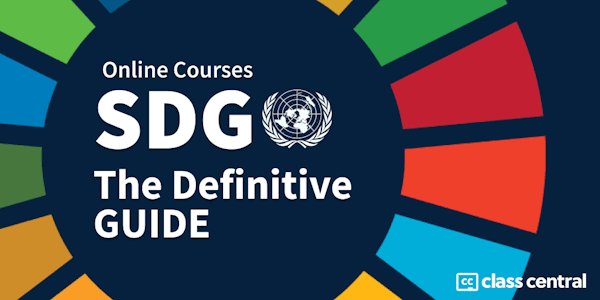Climate change is arguably the greatest public health threat we face. To address it successfully, health and environmental professionals, advocates, and others need to acquire new skills and a deeper understanding of its challenges and solutions. This specialization is for those who wish to understand the impact of climate change on health and are committed to protecting the health of populations using the knowledge and skills they will acquire.
Climate Change and Health: From Science to Action
Yale University via Coursera Specialization
-
484
-
- Write review
Overview
Syllabus
Course 1: Introduction to Climate Change and Health
- Offered by Yale University. Climate change is one of the greatest threats to human health in the 21st century. Yet these impacts to health ... Enroll for free.
Course 2: Climate Adaptation for Human Health
- Offered by Yale University. The world’s climate is changing, and among the most significant negative consequences is to human health. While ... Enroll for free.
Course 3: Communicating Climate Change and Health
- Offered by Yale University. How can you persuasively discuss the negative effects of climate change on human health to motivate change in ... Enroll for free.
- Offered by Yale University. Climate change is one of the greatest threats to human health in the 21st century. Yet these impacts to health ... Enroll for free.
Course 2: Climate Adaptation for Human Health
- Offered by Yale University. The world’s climate is changing, and among the most significant negative consequences is to human health. While ... Enroll for free.
Course 3: Communicating Climate Change and Health
- Offered by Yale University. How can you persuasively discuss the negative effects of climate change on human health to motivate change in ... Enroll for free.
Courses
-
Climate change is one of the greatest threats to human health in the 21st century. Yet these impacts to health are still not well recognized. Since you can’t change what you don’t understand, this course is designed to equip health and environmental professionals, as well as other changemakers and the public, with critical and usable knowledge to take positive action. The course begins with an introduction to the science of climate change and how climate change affects human health. It takes a deep dive into climate change’s adverse health effects, including those related to extreme heat, waterborne infections, insect-borne diseases, and exposure to storms and floods. Throughout, the theme of health equity is interwoven by pointing to what factors make some populations more vulnerable than others to climate change’s negative health impacts. Finally, the course explains how measures to reduce greenhouse gas emissions can not only limit future climate change but can also generate substantial immediate health “co-benefits” over and above the benefit of reducing climate change.
Following completion of the course, students will be able to:
· At an introductory level, describe how the climate has changed, explain the role of greenhouse gases in climate change, and describe how the climate is predicted to change in the future.
· Describe how climate change adversely impacts population health, with differing vulnerability across population sub-groups, through direct effects; through ecosystem transformation and degradation; and through the stress it places on political, economic, and social systems.
· Explain how adaptation and mitigation strategies can reduce adverse health impacts of climate change and can generate substantial non-climate health benefits in a just and equitable manner. -
How can you persuasively discuss the negative effects of climate change on human health to motivate change in your community? How do you encourage your friends, family, neighbors and community leaders to take meaningful action to address these impacts? In this course, you will learn to communicate the health-related risks of climate change effectively to the public and policymakers and motivate positive changes in climate-related behaviors. Starting with a review of best practices in health risk communication, the course examines the specific challenges of climate change communication and successful strategies to address these challenges. Throughout the course, you will build a step-by-step plan for developing and delivering a communications campaign.
-
The world’s climate is changing, and among the most significant negative consequences is to human health. While climate change is a global health issue, its health impacts vary across geographies and populations. In this course, you will learn why taking action to plan for and adapt to climate change is necessary for protecting human health, as well as what kinds of actions are most appropriate for a particular location and population. You also will learn tools and strategies to effectively plan for and enact adaptation actions that build resilience to climate change’s negative effects.
Taught by
Connie Roser-Renouf, Kathryn Conlon and Robert Dubrow






